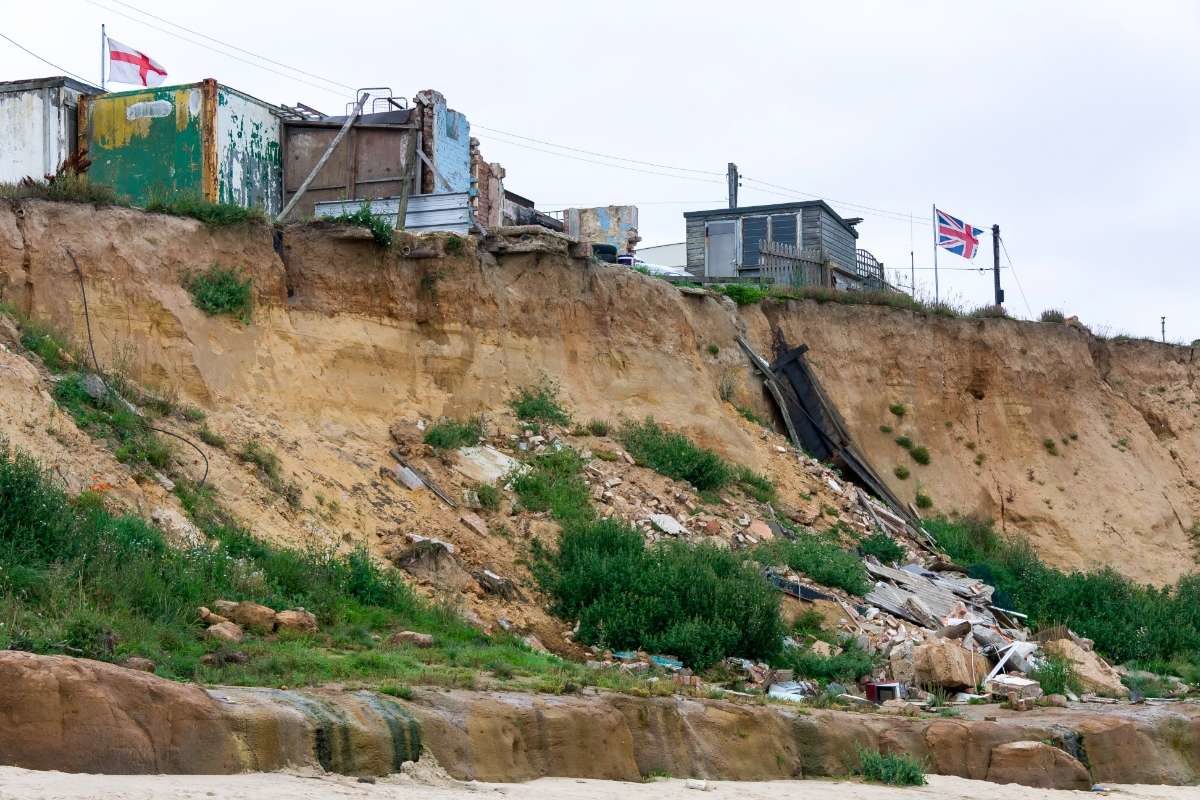
The bleak tale of a Norfolk village that’s slowly falling into the sea
By Tom Hart
A bungalow is balanced on a cliff edge. The house next door is gone already. All that’s left is the back garden where the displaced owner lives in a caravan.
This is Happisburgh (pronounced ‘haze-bro’), a Norfolk village founded over 1,000 years ago. Back then there was an entire other village between Happisburgh and the sea.
The coastline has retreated around 50 metres per decade. In the next decade, Happisburgh’s 14th-century manor house, its Norman church and the country’s only privately operated lighthouse are all set disappear.
‘The design of our defences was based around timber revetments, but these collapsed and haven’t been replaced, which means we’re in the situation of being an undefended area between two concrete defences,’ says Clive Stockton, former deputy leader of North Norfolk District Council and landlord at the Hill House Pub, where Arthur Conan Doyle once wrote the Sherlock Holmes tale The Adventure of the Dancing Men. If the pub’s luck holds then it may have another 30 years left before the sea claims it. Unless defences are improved, the pub, along with other buildings in the village will remain effectively valueless.

After the 1953 North Sea floods, which killed 307 people across four English counties, coastal defences were built up across the Norfolk coast. By 1959, Happisburgh was protected but sea action eventually broke down the defences, and with government money for coastal defence tied to land and property value, Happisburgh was never going to be a priority. It would take £15million to close the gap in sea defences and protect Happisburgh, according to Stockton.
Now the village is squeezed between firm defences to the north and south, a position that places even more pressure on the cliffs. Stockton has lobbied for better sea defences in the area for many years, eventually securing £4million for improvements to the town’s Victorian-era sea defences.
There seems little hope that more money will be spent defending Happisburgh though, and the Royal Geographical Society estimates that the UK will have to spend £25billion over the next 20 years on coastal defences to protect Britain’s coastline from climate change.
When the weather combines with tidal forces change can become rapid. ‘Those are the stairs we used last year to walk down to the beach,’ says a local walker pointing to two concrete stumps on the beach, two metres from the cliff.
Last year’s storms cut the coast back quickly and if those storms become worse, Happisburgh residents will increasingly find themselves in the same positions as a local farmer who ploughed a 12-acre field one night in 1845 only to wake the next morning after a storm to find only the sea.




